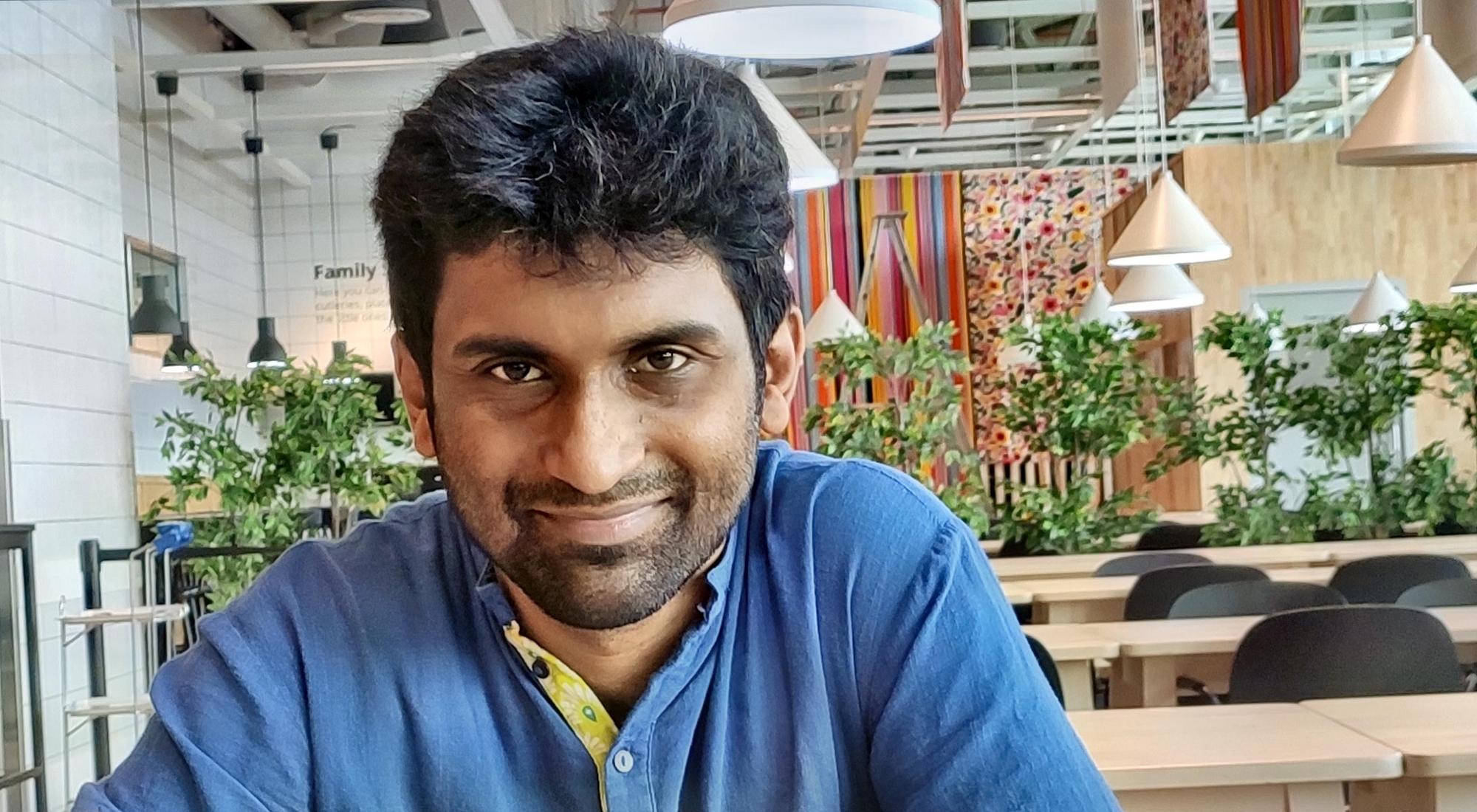Tell us about yourself?
To begin with, I have always been fascinated by sustainable businesses which help the community and touches the lives of every average person in a positive manner
. Having an ancestral home in a village, I am deeply connected with the rural background and want to bridge this gap with the plethora of resources we come to have at our disposal living in cities.
I am a mechanical engineer by education with a master’s in economics and hence understand the scalability of businesses and how that should be run.
In this tech era, have turned to a techpreneur where I am trying to make a positive dent in the sociey through our products and services.
Am actively engaged with the sme startup community, where the thrust is to create deep partnerships to offer great products and experiences for the masses.
In my free time, I mentor graduate and post grad students about their career and the changing business landscape. Aiding this, I have also authored two books on entrepreneurship – titled “Insights from a shy entrepreneur”.
What lessons has being an entrepreneur taught you?
The biggest lesson being an entrepreneur has taught me is to “be indifferent” to a lot of things. Today the society, your investors, employees, family etc will pull or push you with their notions and you have to have a cool head.
I can’t get influenced by other’s talk or decision and developing a “thick skin”, is what entrepreneurship has taught me. I need to be patient, have the long term goal in mind and act accordingly always. I can’t be responsive to critcism, pressure, jealousy etc!!!
If you could go back in time to when you first started your business, what piece of advice would you give yourself?
Always trust yourself. I have been in businesses where perhaps I always thought of myself as amateur and this is where people will try to exploit you.
You need to have trust on yourself, that come what may – you can find a way out of everything. Your success shouldn’t be depended on a particular person being with you or not. And it’s never going to be easy. Health is something that you to take care of foremost.
A lot of entrepreneurs find it difficult to balance their work and personal lives. How have you found that?
It’s really difficult at times to manage both.
But I try and stretch my time with different schedules. I try to minimize time spent on traffic, avoid meetings which are not needed, relying most on emails.
Keep personal office work to be completed at late night when everyone is asleep and I ensure I am there at breakfast and dinner with family at fixed time.
Now my in-laws also stay nearby and require attention frequently, so I drop in regularly for tea while returning from office. It’s all about stealing moments of unproductive work, turning it productive or happy by spending it with family and doing it regularly.
Give us a bit of an insight into the influences behind the company?
As I said, I understand the lack of resources in rural and semi-urban places and the one’s available in cities. Skilling or higher education is one that I found having a big disconnect.
Making the rural youth employable, making the standard of living of people in villages better is the driving force behind Grazing Minds.
What do you think is your magic sauce? What sets you apart from the competitors?
“AIM” is our magic sauce that helps us stand out from our competitors, where A stands for affordability, I is for Impactful and M is for mentoring.
We are not about having scale of 100’s of courses or having a strong sales team and a weak mentoring team.
We are all about creating Impact for our learners through efficient programs and then handholding them, to help them identify their weakness and how they can work on it.
Making learners take the jump in their career and assisting them is our motto and blend it with minimal prices that cover the costs is what sets us apart.
In fact, we cross-subsidize our B2C business offerings from our B2B consulting and training business. Hence, we believe the thrust on our motto and honesty with which we serve makes us different.
How have you found sales so far? Do you have any lessons you could pass on to other founders in the same market as you just starting out?
It’s a win-lose battle. If you are on the street with a product you have conviction with, you are going to get wins. However if you, yourself won’t buy your product – don’t go out selling. At the same time, getting into pricing battles is not sensible.
What is the biggest challenge you have faced so far in your business, and how did you overcome it?
The constant urge to spend on vanity metrics is something of a challenge. We have warded it off with being focussed on the metrics we value, not which the industry values and working on it.
For instance, we don’t run campaigns for social media or are not bothered about digital followers or subscribers. Infact, we have stopped spending or engaging on those metrics.
We have our customer base with whom we constantly engage through newsletters, events on our platforms that gives us more control and visibility.
What do you consider are the main strengths of operating your business in India and the specific state you are in over other states in India?
India gives you an enormous market with a blend of different customer segments which hardly any other market gives. Our customers range from digitally native to digitally naive.
Where multi-language is preferred and the UI and UX need not be loud or cluttery but simple and effective. If you can create a product for India, your product will sell anywhere. Maharashtra gives us the connectivity edge and dependable infra to build out our business.
You don’t have to travel hours to the airport and can practically have office next to stations. In terms of office rentals too, there is a varied availability and the same trickles down to managing costs as well.
The core and finance team can stay out of Mumbai and the backend team can work out of Navi Mumbai or Pune. Similarly the blend of people from all corners are found here, helps us create a product for pan India level.
What (if any) are some weaknesses of operating your business within India and your state?
Sometimes too many regulations and compliances are a dampener to the spirit. Monsoons are a pain and you literally have a productivity loss in Mumbai/Pune due to frequent flooding and staff have to be given extra time off for their personal needs even. So that’s a disadvantage.
If you could operate your business in another state in India rather than the State you are in, which state would it be and why?
Sikkim or J&K or Himachal, where you can get inspiration from nature and work in the lap of Himalayas and beside a river flowing – away from all the pollution and traffic. The productivity levels will be off the charts there, I am sure.
India has an incredibly diverse population. How has the affected your consumer base and business?
The diverse population has increased our TAM and hence we are focusing on specific segments once at a time. Helps us create niche offerings and dive deep in, where we feel the competition has not come down to.
Infrastructure is really important to businesses. How have you seen India’s infrastructure improve recently? Do you see new opportunities opening up?
There is immense opportunity. Physical infra is now broken. I mean, earlier I used to travel to one city and back in a day comfortably.
Now, because of the cabs issue and lack of alternate options, you have to add extra hours to a day’s journey.
So essentially, what earlier used to be done in 16-18 hours – now takes 28-30 hours or so.
That takes a toll on health. For Digital infra, we couldn’t have progressed any fast and with more and more companies embracing digital innovation, getting connected with API’s – we are just at the cusp of a big breakout here.
What do you want to accomplish in the next 5 years with your business?
We want to reach out to every small village in India in next 5 years and having deep presence through partnerships in S.E.Asia making skilling a regular feature and not something only the well-off can afford.
And finally, if people want to get involved and learn more about your business, how should they do that?
Tariffs has not impacted education or consulting space and even if we remove tariffs, because of competition – it will only force us to deliver better for less amount.
So consumer should win. But, predatory prices is what global giants are doing to kill of small sustainable businesses and then charge exhorbitant rates.
This is detrimental to society and hence tariffs are required. If you remove tariffs, you should have some sort of price control mechanism that gives competition to thrive and offer better alternative to customer.
Follow Grazing Minds on Twitter or Linkedin.




